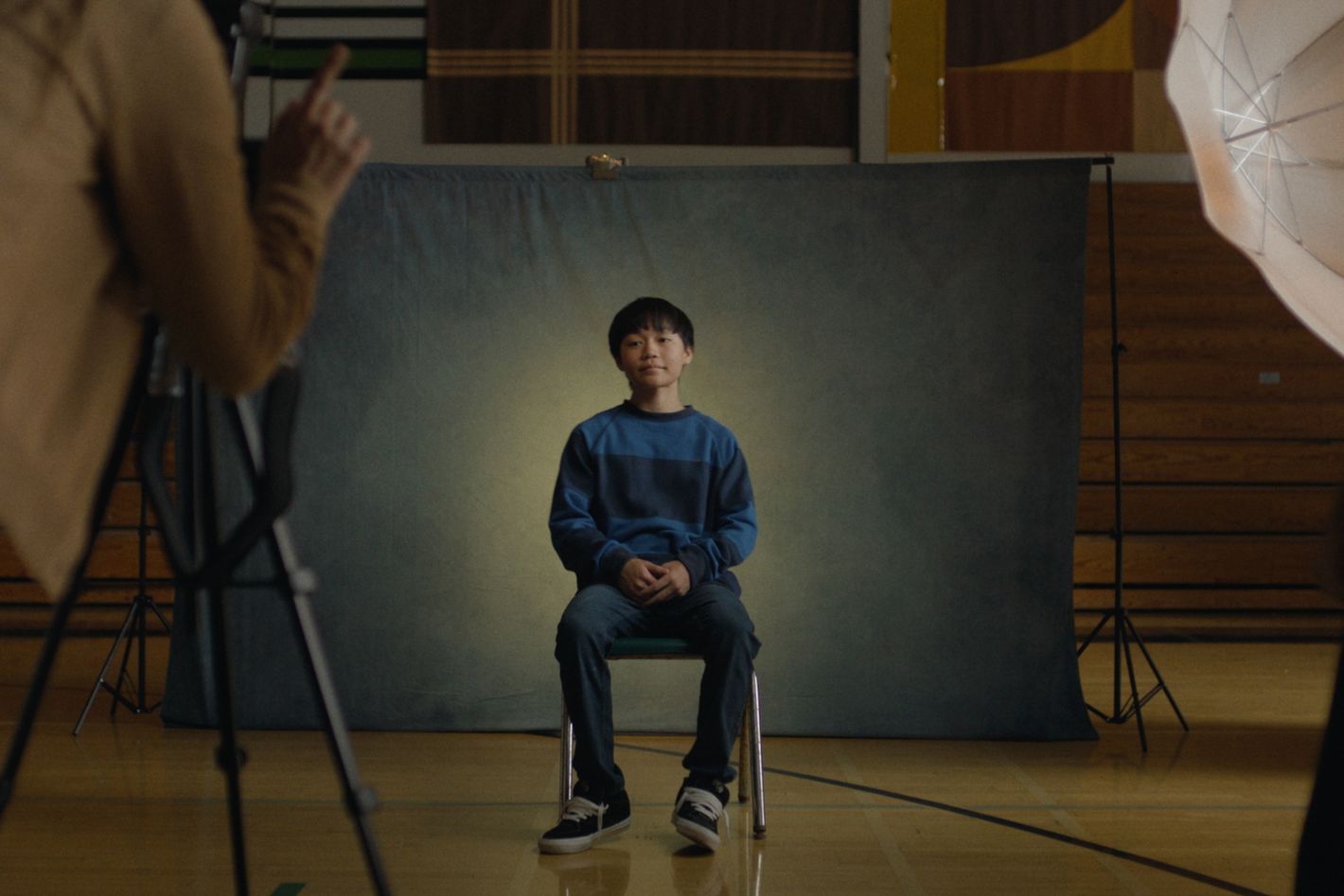Dìdi Remembers All Too Well What It’s Like to Be 13
Sean Wang’s directorial debut so vividly recreates the netherworld between middle and high school that it’s kind of hard to watch.

The official logline for Dìdi claims that it’s about how “an impressionable 13-year-old Taiwanese American boy learns what his family can’t teach him: how to skate, how to flirt, and how to love your mom.” You have to watch the film to appreciate the degree to which this fist-pump-freeze-frame of a summary is actually a wry joke. Chris Wang (Izaac Wang) — Wang Wang to his friends, from whom he grows increasingly estranged — does make a foray into skate culture, a run at his crush, and headway into seeing his mother, Chungsing (Joan Chen), as a person in addition to a parent. But to the extent that he learns anything over his summer, it’s mostly about how miserable the netherworld between middle and high school can be. Teenagerdom arrives in Chris’s life like a storm front, and Dìdi is empathetic about the tumult it brings. What makes Sean Wang’s directorial debut so refreshing, though, is how frank it is about the ways its protagonist redirects the pain he’s feeling outward. It recreates the sensation of drowning in your own hormone-churned emotions so vividly that the film would be difficult to watch if its very existence didn’t serve as a kind of pressure valve. And it provides reassurance that while things may get worse before they get better, this period of life does pass, and eventually you get enough distance to look back on it from the outside as well as from within.
Dìdi is part of a long tradition of coming-of-age movies; the iPhone video it kicks off with, showing Chris conspiring with his buddies to blow up a neighbor’s mailbox, acknowledges this by invoking the famous ending of 400 Blows with a freeze frame of his gleeful face. But it’s also part of a blossoming microgenre of recent indies that are specifically about being 13, teetering from childhood into something more uncertain. Bo Burnham’s Eighth Grade is part of this cohort, as is Jonah Hill’s Mid90s, and while Wang’s contribution has something in common with both, it also unfolds in 2008 in a Bay Area city that’s predominantly Asian, a not-uncommon suburban Californian reality that’s rarely rendered so casually onscreen. As a half-Chinese kid who grew up in a similar neighboring town, and who’s gone to the Milpitas mini-golf course where a cringey scene takes place, I’m more susceptible than most to the giddy familiarity of this setting, but Dìdi is more than another shuffle-step forward in representation. It’s a story about an Asian American character that isn’t presented against a backdrop of whiteness. Chris’s racial identity isn’t an absence — at one point, the mixed-race object of his affections, Madi (Mahaela Park), offers the backhanded compliment of calling him “pretty cute for an Asian” — but it’s not the guiding force in his alienation.
Instead, Chris is freed up to feel like an outcast for other reasons, many of which he probably couldn’t explain in the moment. Throughout the film, he tries out different identities with mostly disastrous results. He attempts to emulate the swagger of his big-talking bestie, Fahad (Raul Dial), but only ends up insulting one of the girls they’re hanging out with. He lets Fahad flirt on his behalf via text with Madi but is so nervous during the resulting date that he pulls away when she tries to initiate something physical. He lies to a group of older kids about having experience shooting skate videos and tells an added lie on top of that about being half-Asian, a fiction that’s quickly uncovered when they stop by his house. Chris’s crises are minor, but Wang gives them the momentousness the character would invest them with and uses period-perfect recreations of the internet to emphasize that. Through the character’s typed-and-deleted AIM replies, Google searches about how to kiss, and surveys of his buddies’ top eights on Myspace, the film is a vivid depiction of someone so terrified of being vulnerable that he’d rather block the girl he likes than admit to her he feels embarrassed.
Dìdi doesn’t offer excuses for the ways in which Chris lashes out, even as it shows how that behavior is born out of insecurity, loneliness, and a desperate desire to fit in. But it does provide a counterpart to Chris’s adventures in flopping socially by way of his home life and, in particular, his relationship with Chungsing. He can’t hide who he is from his family, and with his offscreen father working in Taiwan and supporting them from abroad, he’s effectively growing up in a household of women — his mother; his paternal grandmother, Nǎi Nai (played by Wang’s real life grandmother Chang Li Hua); and his older sister Vivian, (Shirley Chen), who’s on the verge of departing for UC San Diego. Too emotionally constipated to acknowledge how important these women are to him, Chris instead expresses his connection through stealing his sister’s clothes, filming Nǎi Nai’s exercise routines in the backyard, and picking fights with the infinitely patient woman who’s acting as a single parent. Chen plays Chungsing with astonishing generosity, never turning her into a saint or treating her dreams of being a recognized artist as pathetic, even as her son derides the paintings she painstakingly works on in her spare time. The character endures Chris’s exasperation, rudeness, and smothered squirming away with the grace of someone who is willing to stand fast by her children without allowing herself to be a punching bag. Dìdi is unquestionably about Chris, yet by the end, it feels like it’s also an ode to his mother — something between an apology and a tribute, and a gesture that could only come from someone able to return to that time in his life but reflect on it with the perspective of an adult.
